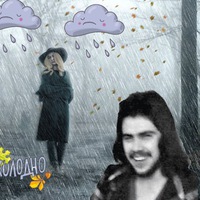Прп. Максим Исповедник: «Тот, кто познает тайну креста и гроба, познает также существенный смысл всех вещей…Тот, кто проникнет ещё глубже креста и гроба, и будет посвящён в тайну воскресения, познает конечную цель, ради которой Бог создал все вещи изначала»;
Свт. Кирилл Иерусалимский: «И тот (Иона) брошен был во чрево кита; а сей добровольно сошёл туда, где мысленный оный кит смерти, сошёл добровольно, чтобы смерть изблевала поглощенных ею, как писано: „от руки адовы, избавлю я, и от смерти искуплю я“ (Ос. 13:14)… Надлежало пострадать за нас Господу, но не осмелился бы приступить диавол, если бы знал сие. „Если бы познали (власти века сего), то не распяли бы Господа славы“ (1Кор. 2:8). Итак, тело соделалось отравою смерти, дабы дракон, когда надеялся пожирать, изблевал и тех, которых пожрал».
Свт. Иоанн Златоуст: «Восторжествовал над адом Сошедший в ад. Горько пришлось аду, когда он вкусил Его плоти. И, прозрев это, Исаия воскликнул: „Горько пришлось аду при встрече с Тобою в преисподней“. Горько пришлось, потому что он упразднен; …Принял тело и (внезапно) натолкнулся на Бога; принял землю, а встретил Небо; принял то, что видел, и попался на то, чего не видел. Смерть, где твое жало? Ад, где твоя победа? Воскрес Христос — и ты повержен.
В. Н. Лосский: «Христос принял на Себя нашу природу,… для того, чтобы разрешить трагедию человеческой свободы, преодолеть разрыв между Богом и людьми, внося разрыв во внутрь Своей Личности, в Которой нет места ни для какого разрыва… В Своем неизреченном кенозисе Богочеловек включает Себя в растленную реальность, истощая её, очищая её изнутри Своей нерастленной волей. Это добровольное включение Себя в условия падшего человечества должно привести к смерти на кресте, к схождению во ад… Святой Максим учит, что дело спасения включает три степени, которые Христос последовательно восстановил в природе: бытие, благобытие (eu einai) и бытие вечное (aei einai). Первое достигнуто воплощением, второе — неповрежденностью земного воления, приведшего ко кресту, третье — неповрежденностыо природной, раскрывшейся в воскресении».
Свт. Кирилл Иерусалимский: «И тот (Иона) брошен был во чрево кита; а сей добровольно сошёл туда, где мысленный оный кит смерти, сошёл добровольно, чтобы смерть изблевала поглощенных ею, как писано: „от руки адовы, избавлю я, и от смерти искуплю я“ (Ос. 13:14)… Надлежало пострадать за нас Господу, но не осмелился бы приступить диавол, если бы знал сие. „Если бы познали (власти века сего), то не распяли бы Господа славы“ (1Кор. 2:8). Итак, тело соделалось отравою смерти, дабы дракон, когда надеялся пожирать, изблевал и тех, которых пожрал».
Свт. Иоанн Златоуст: «Восторжествовал над адом Сошедший в ад. Горько пришлось аду, когда он вкусил Его плоти. И, прозрев это, Исаия воскликнул: „Горько пришлось аду при встрече с Тобою в преисподней“. Горько пришлось, потому что он упразднен; …Принял тело и (внезапно) натолкнулся на Бога; принял землю, а встретил Небо; принял то, что видел, и попался на то, чего не видел. Смерть, где твое жало? Ад, где твоя победа? Воскрес Христос — и ты повержен.
В. Н. Лосский: «Христос принял на Себя нашу природу,… для того, чтобы разрешить трагедию человеческой свободы, преодолеть разрыв между Богом и людьми, внося разрыв во внутрь Своей Личности, в Которой нет места ни для какого разрыва… В Своем неизреченном кенозисе Богочеловек включает Себя в растленную реальность, истощая её, очищая её изнутри Своей нерастленной волей. Это добровольное включение Себя в условия падшего человечества должно привести к смерти на кресте, к схождению во ад… Святой Максим учит, что дело спасения включает три степени, которые Христос последовательно восстановил в природе: бытие, благобытие (eu einai) и бытие вечное (aei einai). Первое достигнуто воплощением, второе — неповрежденностью земного воления, приведшего ко кресту, третье — неповрежденностыо природной, раскрывшейся в воскресении».
Pr Maxim the Confessor: “He who knows the secret of the cross and the tomb, also knows the essential meaning of all things ... He who penetrates even deeper than the cross and the tomb, and will be consecrated to the secret of the resurrection, knows the ultimate goal for which God created all things from the beginning”;
St. Cyril of Jerusalem: “And he (Jonah) was cast into the belly of a whale; and this one voluntarily went down to the place where the thought whale of death came down voluntarily, so that death would vomit those absorbed by it, as it is written: “I will deliver from the hands of hell, and I will atone from death” (Hos. 13:14) ... It was to suffer for us To the Lord, but the devil would not dare to embark if he knew these things. “If they had known (the authorities of this world), they would not have crucified the Lord of glory” (1 Cor. 2: 8). So, the body became a poison of death, so that the dragon, when he hoped to devour, spit those whom he devoured. "
St. John Chrysostom: “He who triumphed over hell descended into hell. Hell was bitter when he tasted His flesh. And, seeing this, Isaiah exclaimed: “Hell was bitter when I met you in the underworld.” It was bitter because it was abolished; ... He took the body and (suddenly) came across God; He received the earth, and met the sky; accepted what he saw, and fell for what he did not see. Death, where is your sting? Hell, where is your victory? Risen Christ - and you are defeated.
V. N. Lossky: “Christ took upon Himself our nature, ... in order to resolve the tragedy of human freedom, to bridge the gap between God and people, making a gap in His Person inside, in Which there is no room for any gap ... In His unspeakable kenosis God-man includes Himself in corrupt reality, draining it, cleansing it from the inside by His unformed will. This voluntary inclusion of Himself in the conditions of fallen humanity should lead to death on the cross, to descent to hell ... St. Maximus teaches that the work of salvation includes three degrees that Christ consistently restored in nature: being, prosperity (eu einai) and eternal life (aei einai). The first was achieved by incarnation, the second by the intactness of the earthly will that led to the cross, the third by the intactness of nature, revealed in the resurrection. ”
St. Cyril of Jerusalem: “And he (Jonah) was cast into the belly of a whale; and this one voluntarily went down to the place where the thought whale of death came down voluntarily, so that death would vomit those absorbed by it, as it is written: “I will deliver from the hands of hell, and I will atone from death” (Hos. 13:14) ... It was to suffer for us To the Lord, but the devil would not dare to embark if he knew these things. “If they had known (the authorities of this world), they would not have crucified the Lord of glory” (1 Cor. 2: 8). So, the body became a poison of death, so that the dragon, when he hoped to devour, spit those whom he devoured. "
St. John Chrysostom: “He who triumphed over hell descended into hell. Hell was bitter when he tasted His flesh. And, seeing this, Isaiah exclaimed: “Hell was bitter when I met you in the underworld.” It was bitter because it was abolished; ... He took the body and (suddenly) came across God; He received the earth, and met the sky; accepted what he saw, and fell for what he did not see. Death, where is your sting? Hell, where is your victory? Risen Christ - and you are defeated.
V. N. Lossky: “Christ took upon Himself our nature, ... in order to resolve the tragedy of human freedom, to bridge the gap between God and people, making a gap in His Person inside, in Which there is no room for any gap ... In His unspeakable kenosis God-man includes Himself in corrupt reality, draining it, cleansing it from the inside by His unformed will. This voluntary inclusion of Himself in the conditions of fallen humanity should lead to death on the cross, to descent to hell ... St. Maximus teaches that the work of salvation includes three degrees that Christ consistently restored in nature: being, prosperity (eu einai) and eternal life (aei einai). The first was achieved by incarnation, the second by the intactness of the earthly will that led to the cross, the third by the intactness of nature, revealed in the resurrection. ”

У записи 8 лайков,
0 репостов.
0 репостов.
Эту запись оставил(а) на своей стене Вероника Вовденко




























